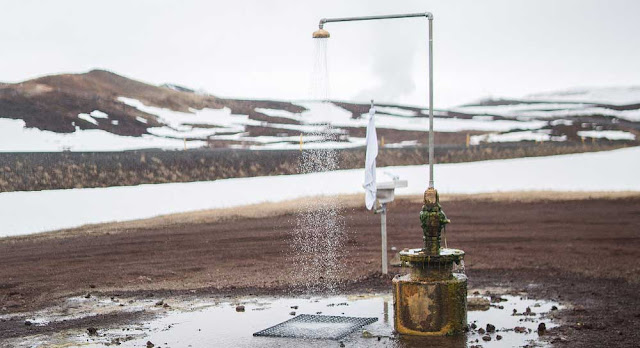The Greatest Evil to Befall a Soul, Except Sin, Is...
I once went to a look-out spot which presented a stunning view of the Saskatchewan River. However, before I could get to the actual look-out spot, I had to stroll pass a fenced-in storage area. At that moment, there happened to be a deer within the fenced in area. Amused, I stood and watched. The deer looked up and saw me, and then utterly freaked out. In desperation to escape, he started ramming himself against the chain-link fence. With great violence he smashed his body towards the metal, harder and harder, all to no avail. Not wanting the animal to kill itself (which it surely would have), I quickly went out of sight.
What happened afterwards? I imagine the deer calmed down, remembered where it was, and sheepishly walked out of the fenced in area by using the massive opening just a few feet away.
* * *
The deer story provides an example of what, according to St. Francis de Sales, is the greatest evil to befall a soul (besides sin). He is speaking of disquietude. Disquietude is as the name suggests. It "arises from an immoderate desire to be delivered from the ill which we experience, or to obtain the good for which we hope; and yet there is nothing which so aggravates the ill, and so impedes the good, as disquietude and eagerness" (Introduction to the Devout Life).
While I gave a story of a deer "caught" in a fence, St. Francis de Sales provides an example of a bird caught in a net. The bird flutters and flaps in desperation to get out. As it does this, it gets more entangled. If the bird were to act with calmness it could, perhaps, easily escape from the net enclosing it. But this is not the case. The bird (as with the deer), freaks out, smashes, crashes, and all together makes a mess of the situation.
We do the same when we act with disquietude. There is an evil befalling us, such as a draconian COVID policy, a harmful statement from a Church leader, a fight with a neighbour, a war in Ukraine... or, perhaps, there is a good we desire but cannot obtain, such as a new job, a farm, an object or position to make life less burdensome... Disquietude often arises when we don't immediately get what we want. And so we focus on the problem. It soon overwhelms us. We flutter and flap and smash our heads in desperation. We lose peace in our souls. We abandon rational thought, kindness, and much of the virtue we have spent years acquiring. And through this we end up far worse than when we began. St. Francis is right to call disquietude a great evil.
What are we to do? I will return to the example of the deer.
First to note, the deer required me to leave his presence in order to calm down. I think often when we are troubled we experience a perceived absence of God. I imagine God sees us flailing about wildly, without any attempt to calm down or listen. So God removes His visible presence from us in order to make us realize what is happening. It is not cruel or unloving. It is merciful and necessary.
Then what? We must calm down. Step back. Get our bearings. Let our confessor, or a devout friend, know what is happening. We must invoke merciful sayings such as Jesus I trust in Thee, Mary Mother of Mercy, or St. Joseph mighty patron. And above all, says St. Francis de Sales to all us, "When you experience disquietude, recommend yourself to God, and resolve to do nothing of that to which your desire urges you, until the disquietude has entirely passed away, unless it be something that cannot be deferred, in which case you must, with a gentle tranquil effort, control the course of your desire, restraining and moderating it as much as you can, and then you must do the thing, not according to your desire, but according to reason."
Otherwise, we are all just irrational animals throwing ourselves into a fence. This leads us nowhere. Especially not to heaven.







I think this is most important part of Spiritual journey, awareness of suffering and the role of redemptive Suffering. Thank you for your symbolism. We want an easy fix when we come to God but when we realize pain is part of the Cross that Jesus has left us to share with Him, we rise with Him and offer it up for others. It makes sense, and is not arbitrary. Thank you Jesus.
ReplyDeleteVery true Kristine. I know I always want things done my own way (which usually means the easy way).
Delete